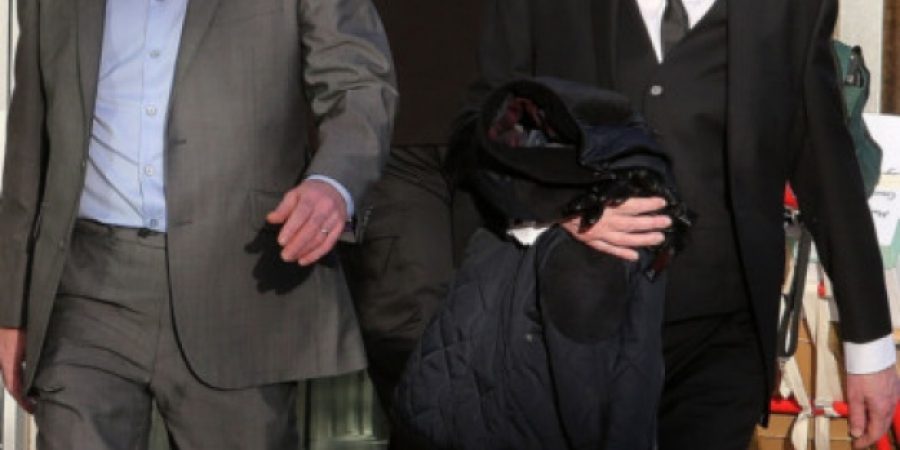MI5 may have bugged RUC interrogation centre during the Troubles

BRITISH intelligence officers may have secretly recorded every interrogation carried out by the RUC during the Troubles.
The claim has been made by solicitors acting for four Derry men falsely accused of killing a British solider.
Solicitors for Gerry McGowan, Michael Toner, Stephen Crumlish and Gerard Kelly, are set to go to court later this month in a bid to force British intelligence agencies to hand over suspected covert recordings made while they were being questioned by the RUC nearly 40 years ago.
The men are seeking compensation after they were falsely accused of killing British soldier Stephen Kirby who was shot dead by the IRA at Wapping Lane in Derry in February 1979.
They also want access to communications between Strand Road Holding Centre and the RUC and the Ministry of Defence (MoD) as well as between the RUC and MoD at the time the men were questioned at Strand Road barracks.
The men, who are known as the ‘Derry Four’, were all teenagers when they were arrested. The four, who said they were forced to sign false confessions, later skipped bail and fled to the Republic where they lived for 20 years.
They were all eventually acquitted of killing the soldier in 1998.
Their solicitor Patricia Coyle has lodged papers with the High Court in Belfast demanding that MI5, the British Ministry of Defence and PSNI hand over all recordings, covert and overt, interview notes, witness statements and exhibits relating to the case.
The solicitor also wants access to all RUC communications relating to the case and has requested all information held by the MoD relating to the shooting of Stephen Kirby.
Suspicions that MI5 may have bugged RUC holding centres during the Troubles were brought to light by English journalist and author Ian Cobain.
He revealed that RUC officers found hidden bugs in more than 20 rooms in Castlereagh interrogation centre in 1977.
The devices were believed to have been planted by MI5 with the help of Special Branch.
After briefly refusing to question suspects in protest, officers later returned to work after being given assurances the bugs had been removed.
However, in his book Cruel Britannia Cobain reveals that English detective John Stephens, who investigated collusion with in the RUC, was said to have become aware that the bugs were replaced.
It was claimed while he did not gain access to transcripts, members of his staff told senior RUC officers that “they had been bugged throughout the Troubles”.
Ms Coyle says that recent papers released by the British National Archives in London reveal details of the design of RUC holding centres in the 1970s and confirm that they had the capacity to instantly communicate intelligence to RUC headquarters and other branches of the British government.
The solicitor said she has written to the security service (MI5) asking for covert recordings relating to her clients to be handed over.
In response the Crown Solicitor’s Office said that the organisation neither confirms nor denies that it holds the information.
Ms Coyle said if covert recordings did exist it would be significant for a number of cases.
“If covert recordings exist..they may raise serious issues of potential criminality on the part of the state, further challenges to Diplock Court convictions based on uncorroborated confession evidence and have other wide ranging implications for cases involving state collusion.”








